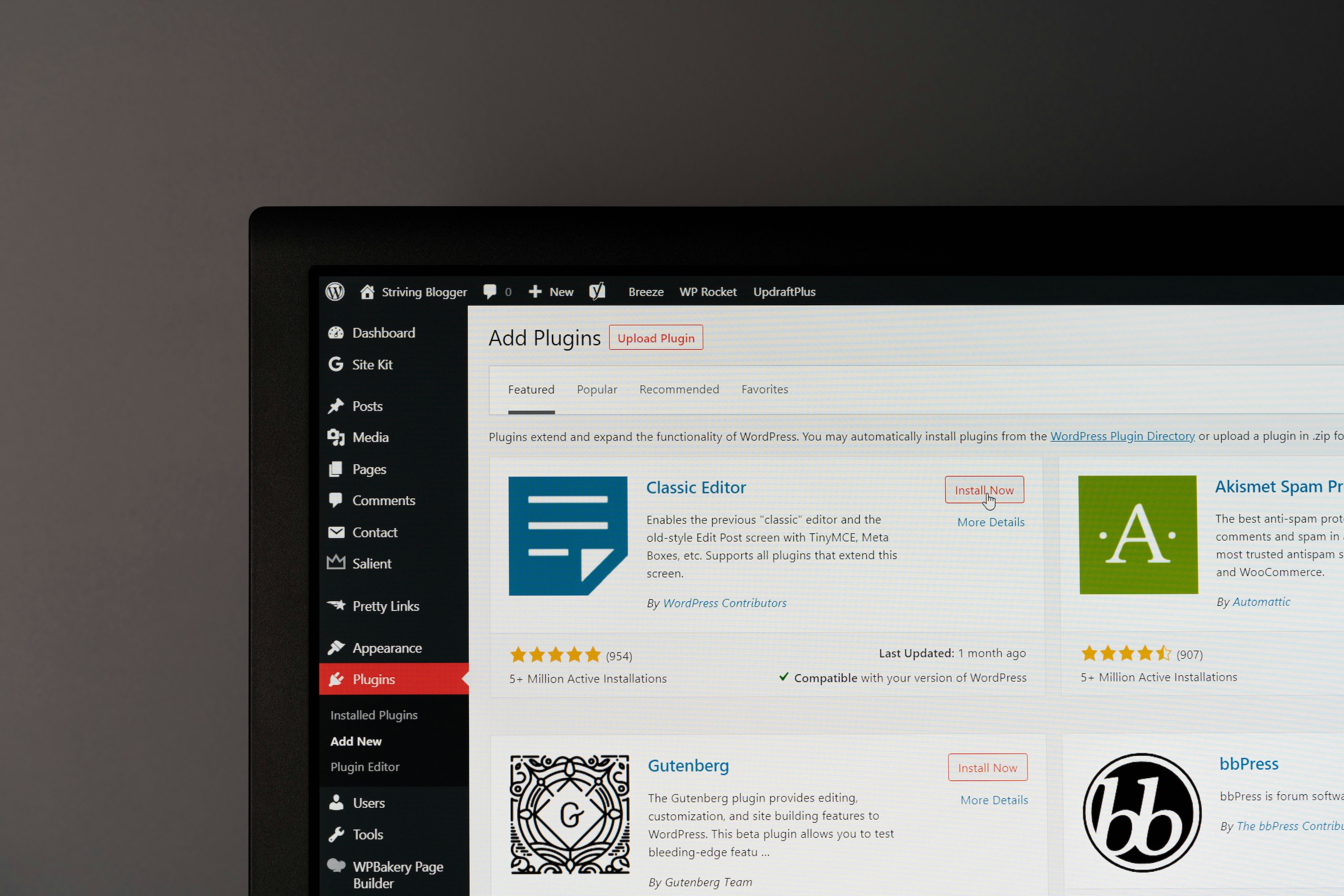Artificial Intelligence (AI) is no longer just a buzzword. It is rapidly becoming a practical tool for online businesses of all sizes.
For WooCommerce store owners, the promise of AI can feel both exciting and overwhelming. You may have seen plugin lists, chatbot demos, or headlines about AI-driven marketing, but figuring out how these tools actually fit into your store’s daily operations is another story.
The good news is that AI for WooCommerce is not about building complex systems or hiring data scientists. Today, there are accessible plugins that can personalize shopping experiences, predict customer behavior, and even automate repetitive tasks. From smarter product recommendations to real-time analytics, AI tools are making it easier to market effectively, boost sales, and deliver the kind of seamless customer experience shoppers now expect.
In this guide, we will break down what AI means for WooCommerce, explore real use cases, highlight plugin categories worth considering, and discuss both the benefits and challenges.
Most importantly, you will learn how to adopt AI incrementally, starting small and scaling as your store grows, so it feels manageable and delivers measurable impact.
Let’s get started.
What is AI in WooCommerce?
AI refers to software that can learn from data, recognize patterns, and make decisions with minimal human input. In eCommerce, this often means tools that analyze customer behavior, automate routine tasks, or provide real-time recommendations.
For WooCommerce stores, AI goes beyond the platform’s standard features like basic reports or search. It introduces capabilities such as personalized product suggestions, predictive sales forecasts, and chatbots that handle customer queries around the clock.
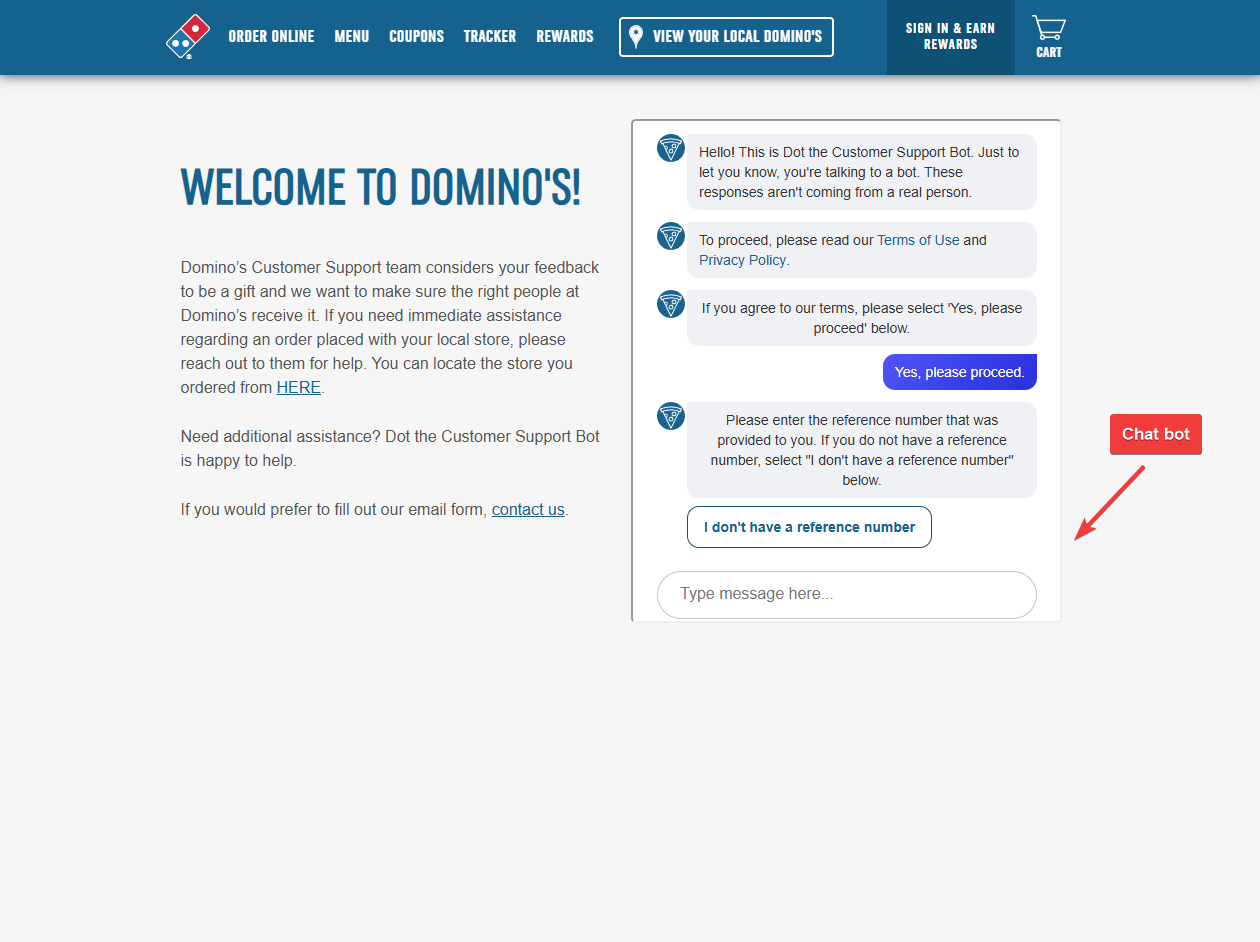
Put simply, AI in WooCommerce helps store owners work smarter, not harder. It allows you to understand your customers better, make data-driven decisions, and deliver a more personalized shopping experience without adding extra manual workload.
Benefits of Using AI in WooCommerce
AI brings a wide range of advantages to WooCommerce stores, helping owners improve efficiency while delivering better experiences for shoppers. Instead of handling every task manually, store owners can rely on AI tools to automate, personalize, and optimize key parts of their business.
Key benefits include:
- Tailor product recommendations, discounts, and email campaigns to match each customer’s behavior and preferences.
- Use AI-driven upselling, cross-selling, and dynamic pricing strategies to increase conversions and boost average order value.
- Provide instant 24/7 responses to common questions with AI chatbots, improving satisfaction and reducing support workload.
- Forecast demand, manage inventory more effectively, detect fraud, and automate repetitive tasks that would otherwise take up valuable time.
- Gain deeper insights into customer behavior through advanced analytics, helping to design smarter marketing campaigns and long-term growth strategies.
Together, these benefits make AI an accessible way for WooCommerce stores to compete with larger retailers and deliver the kind of shopping experience today’s customers expect.
AI Use Cases in WooCommerce
AI is no longer limited to experimental tools. WooCommerce store owners are already utilizing it in practical ways to boost sales, enhance the customer experience, and streamline operations. Here are some of the most common use cases:
- Personalized Product Recommendations: AI suggests related or complementary products based on browsing and purchase history, helping increase cart size and encourage repeat purchases through data-driven upselling and cross-selling.
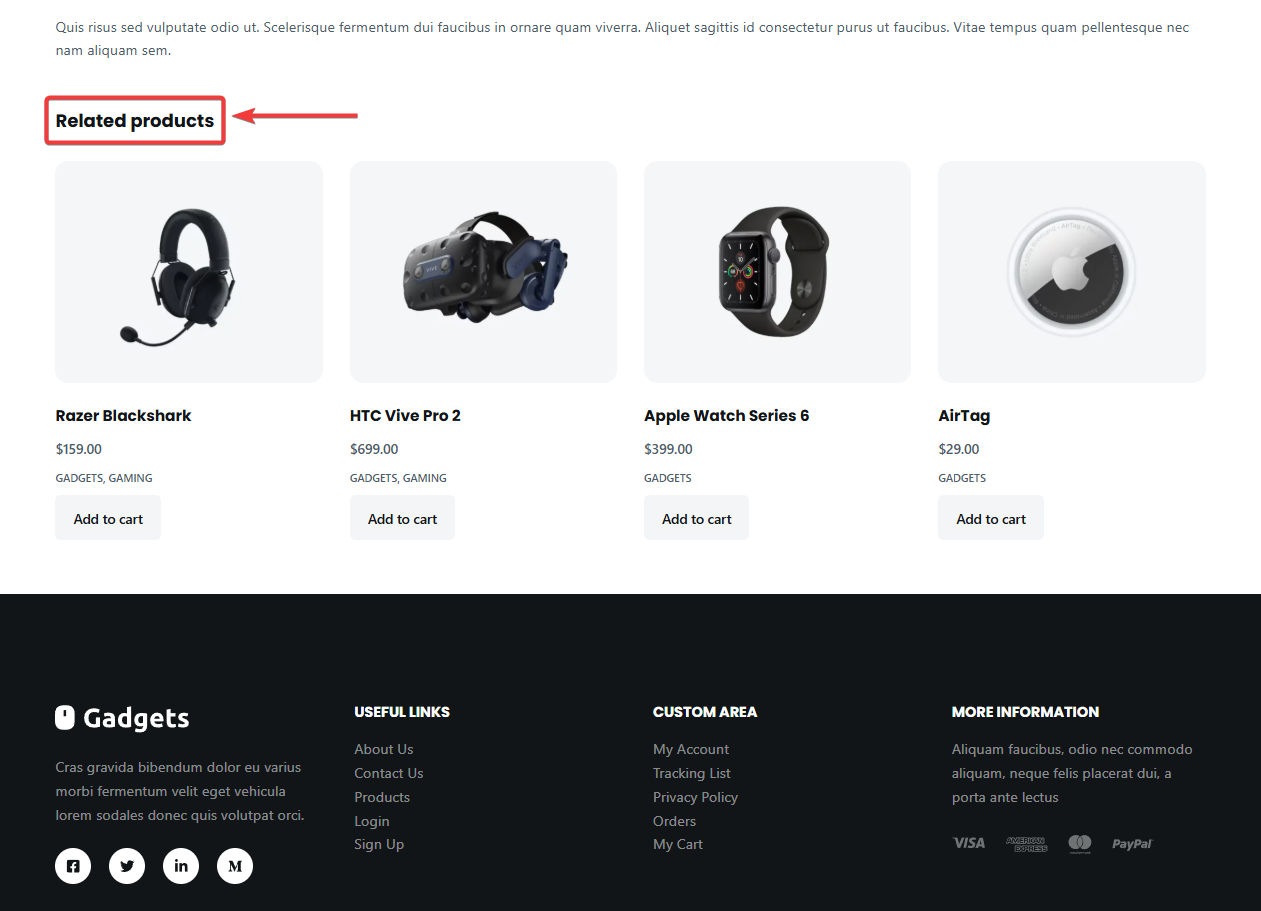
- Dynamic Pricing and Promotions: AI adjusts product prices in real time based on demand, competition, or seasonality, and can offer personalized discounts or incentives to reduce cart abandonment.
- AI-Driven Chatbots and Virtual Assistants: AI chatbots provide instant 24/7 support for FAQs, order tracking, and product details while guiding shoppers through their journey to reduce drop-offs. See our guide: eCommerce Chatbot Examples and Best Free Live Chat Plugins.
- Predictive Analytics for Customer Behavior: AI identifies shoppers most likely to convert or churn, enabling targeted campaigns with higher ROI and forecasting trends to inform product launches and promotions.
- Inventory and Supply Chain Optimization: AI forecasts demand to prevent stock issues, automates reordering, and streamlines warehouse operations for smoother fulfillment.
By applying AI to these use cases, WooCommerce stores can achieve results that would normally require large teams and extensive manual effort.
Types of AI Plugins to Use in WooCommerce
With so many AI plugins available, it helps to focus on the main categories that deliver real value for WooCommerce stores. Here are some of the most impactful ways AI plugins are being used today:
- Automating cart recovery, product follow-ups, and personalized email campaigns that reach customers at the right time with the right message.
- Powering chatbots that answer FAQs, handle order tracking, and provide 24/7 support while guiding shoppers toward products they are most likely to buy. See: eCommerce Chatbot Examples.
- Recommending related or trending products across product pages, checkout, and follow-up emails to boost conversions and average order value.
- Transforming raw WooCommerce data into actionable insights by predicting sales trends, identifying churn risks, and optimizing marketing spend.
- Creating content like product descriptions, meta tags, and blog content with AI writing tools, and improving search visibility through keyword targeting and automated SEO features. Read more: 7 Best AI Plugins for WordPress.
- Forecasting demand, automating reordering, and streamlining fulfillment workflows to prevent stock issues and reduce operational bottlenecks.
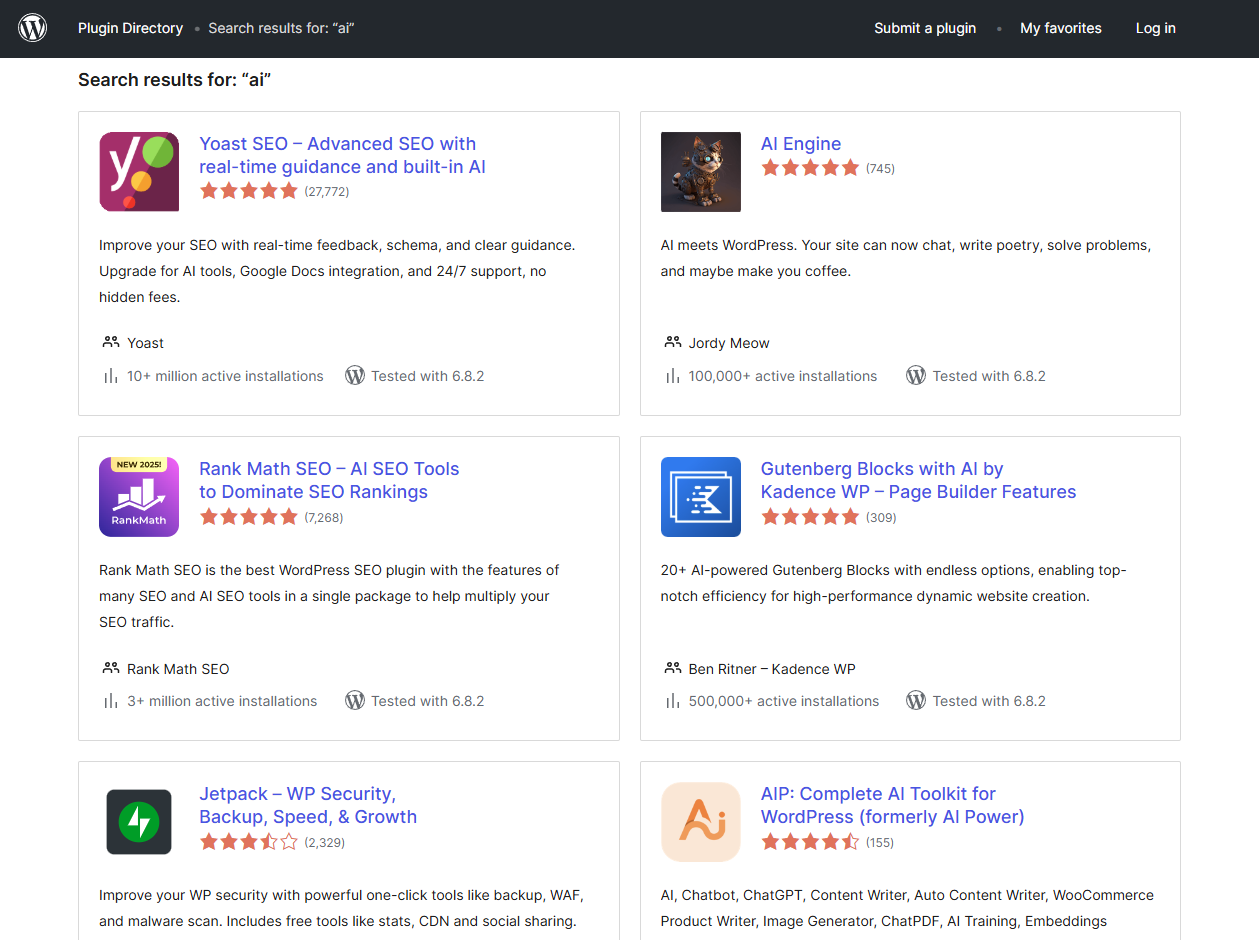
By selecting tools from these categories, WooCommerce store owners can build an AI toolkit that enhances marketing, improves customer experience, and keeps operations running smoothly.
Challenges and Things to Consider When Using AI
While AI can bring powerful results, there are a few challenges WooCommerce store owners should be aware of before diving in:
- Many AI plugins require premium plans, and advanced features often mean higher subscription costs.
- Since AI relies on customer data, you’ll need to follow GDPR, CCPA, and other privacy regulations to maintain trust.
- Not every plugin works seamlessly with all setups, and misconfiguration can cause inaccurate results.
- Over-automation may feel impersonal, so keeping space for real human interaction is important.
- AI tools often require consistent monitoring and fine-tuning, as results can decline if left unchecked or not updated with new data.
By planning ahead and choosing tools carefully, store owners can overcome these challenges and set up AI in a way that truly supports their business.
How to Get Started With AI in WooCommerce
Adding AI to your WooCommerce store does not have to feel overwhelming. The best approach is to start small, focus on one use case, and expand gradually as you see results.
By treating AI as a series of manageable steps rather than a complete overhaul, you can build confidence and see tangible improvements along the way.
1. Identify Your Biggest Challenge
Start by looking at the pain points in your store. If customers abandon their carts frequently, an AI-powered recovery tool may be the best entry point. If customer support takes up too much time, a chatbot could free your team to focus on more complex issues. Identifying the area where AI can deliver the fastest return makes adoption more worthwhile.
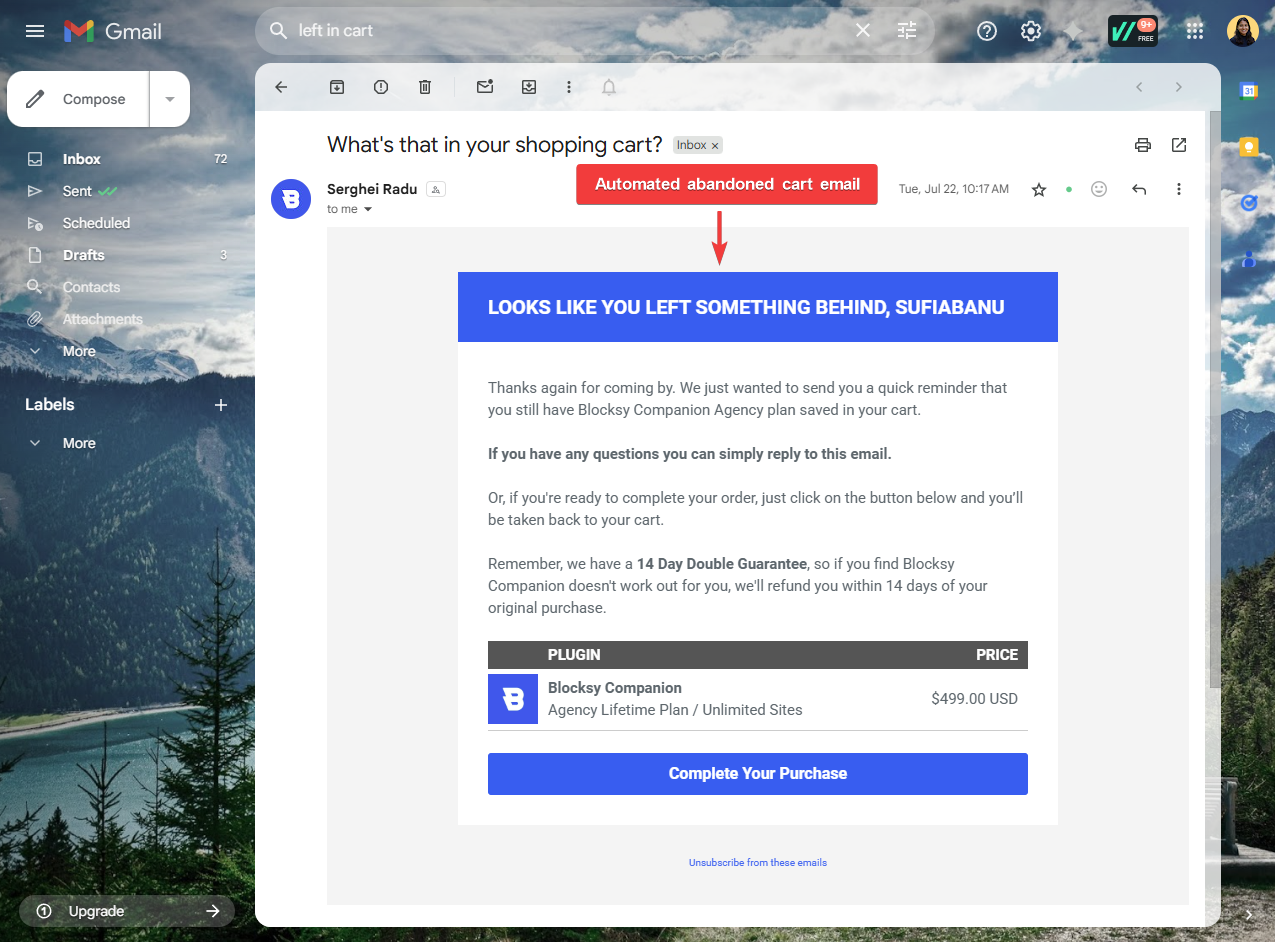
2. Choose the Right Plugin
Once you know your goal, research plugins that specialize in solving that problem. For example, if increasing conversions is your priority, look for AI-driven product recommendation tools. If scaling marketing is the goal, focus on plugins for segmentation and automated campaigns. Installing one plugin at a time helps you test results without adding unnecessary complexity.
3. Test and Measure Performance
AI works best when its results are measured. Track KPIs such as conversion rates, email engagement, or customer satisfaction scores. Many AI plugins offer built-in analytics, making it easier to see whether the tool is delivering value.
4. Optimize and Refine
Most AI plugins improve as they collect data. Allow time for the system to learn customer behavior, and don’t hesitate to adjust settings. Even small refinements like updating product tags for better recommendations can significantly improve results.
5. Scale Gradually
Once you’re confident in the results from one tool, consider layering in others. For example, a store that starts with cart recovery can later add predictive analytics or AI-powered content creation. Over time, your toolkit will evolve into a system that supports every part of your business.
By following these steps, WooCommerce store owners can adopt AI in a way that feels practical, sustainable, and results-driven. The key is not to rush but to build slowly, ensuring each tool adds measurable value before moving on to the next.
Ready to start your e-commerce journey? Check out our e-commerce website templates.
The Future of AI in WooCommerce
AI in eCommerce is still evolving, and WooCommerce stores are likely to see even more powerful applications in the near future.
One of the biggest trends will be hyper-personalization at scale, where every part of the shopping journey, from the homepage layout to discount offers, is tailored to the individual customer in real time.
Voice commerce and visual search are also set to grow. Shoppers will increasingly use assistants like Alexa or Google to place orders, while visual search tools will allow customers to upload an image and instantly find similar products in a store’s catalog. Combined with AI-driven recommendations, this creates a seamless discovery experience.
Real-time analytics and augmented reality (AR) will further change the way customers interact with WooCommerce stores. Store owners will be able to get instant insights into customer behavior and sales trends, while AR previews, such as “try before you buy” for furniture or clothing, will enhance decision-making.

Most importantly, AI will shift from being a “nice to have” feature to a necessity. As customer expectations rise and competition grows, WooCommerce stores that embrace AI will be better positioned to meet demand, while those that ignore it risk falling behind.
Conclusion
AI is no longer a futuristic concept. It is already reshaping how WooCommerce stores attract customers, increase sales, and streamline operations.
From personalized product recommendations to predictive analytics and smarter chatbots, these tools help store owners create shopping experiences that feel more relevant and engaging while saving time on routine tasks.
The key is to start small.
Choose one area where AI can make an immediate difference, measure the results, and then expand into other tools as your store grows. By approaching AI step by step, you can avoid overwhelm and steadily build a smarter, more competitive WooCommerce business.
As the eCommerce landscape evolves, AI will play an even bigger role in meeting customer expectations and staying ahead of the competition.
Now is the right time to begin exploring its potential for your store!

